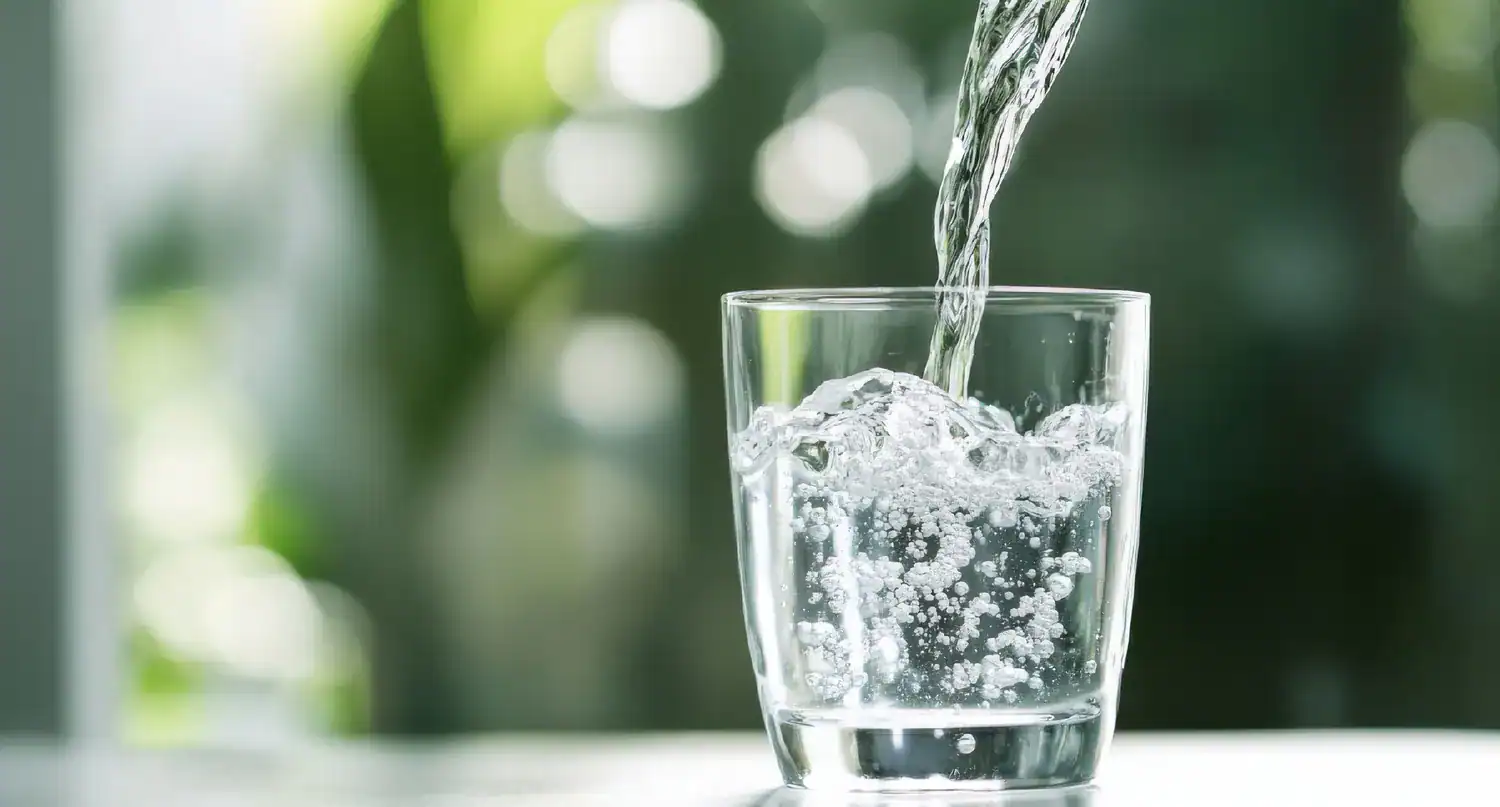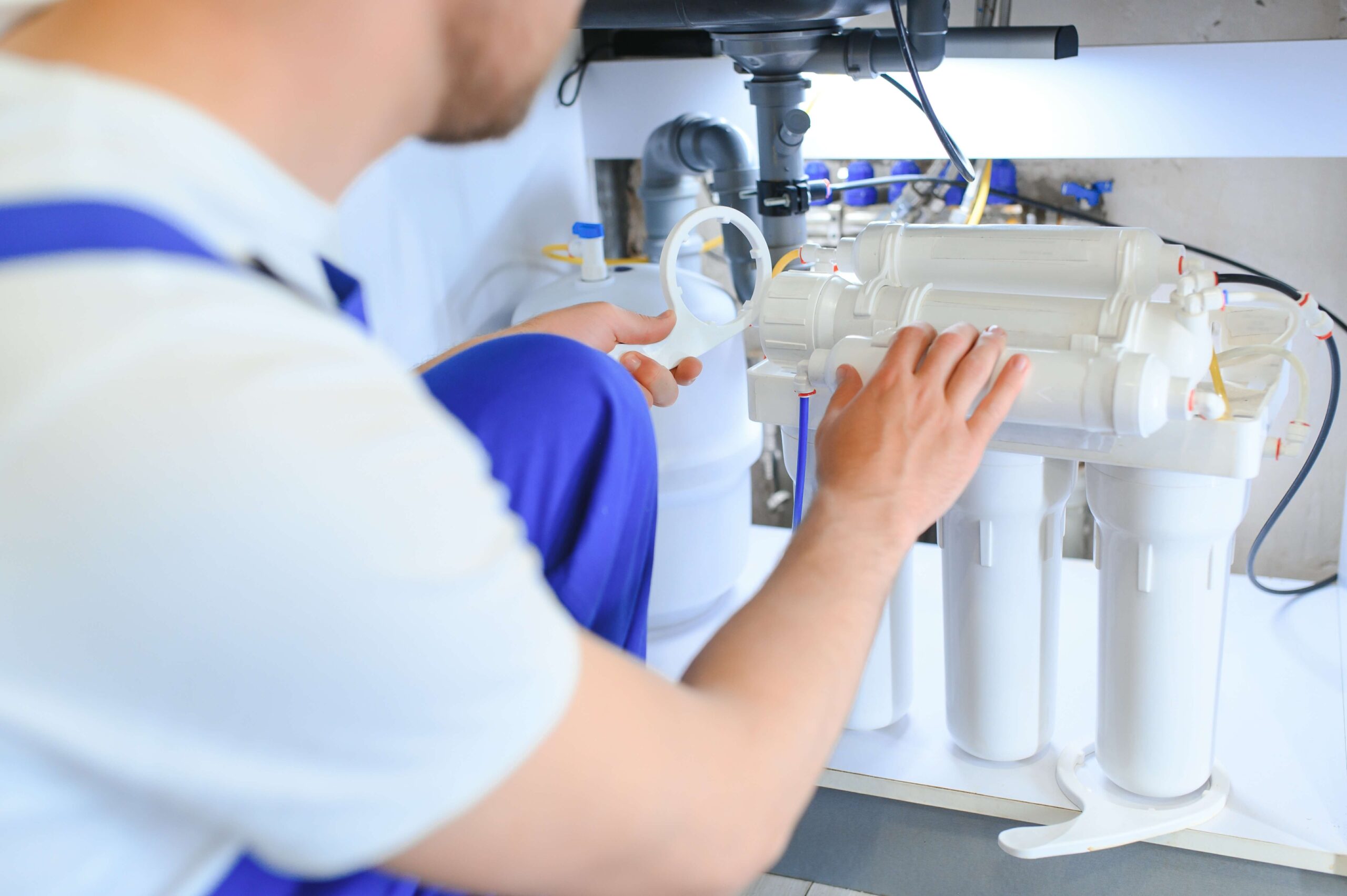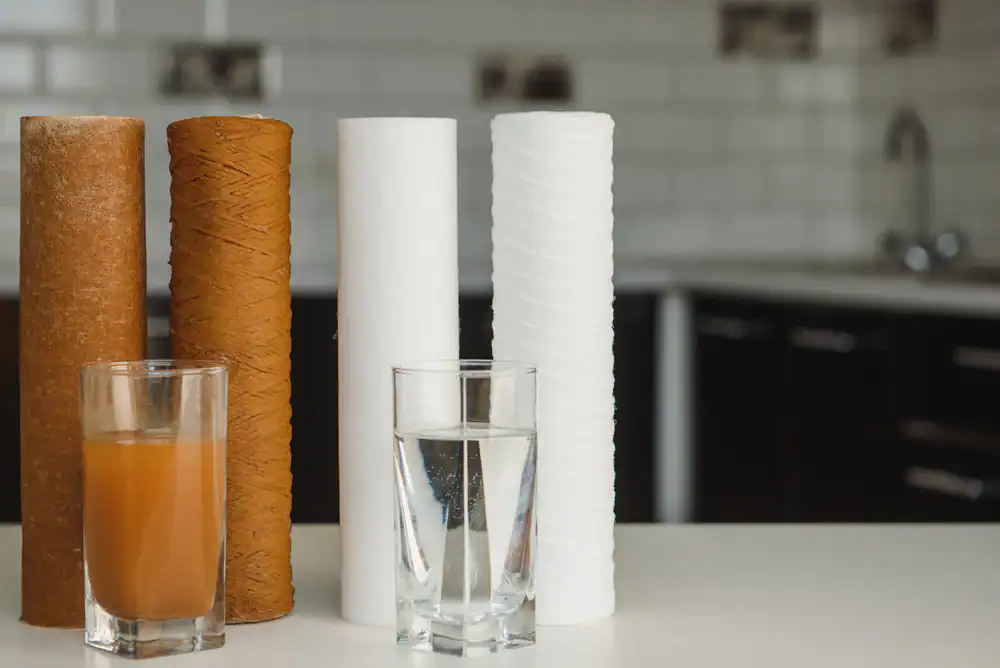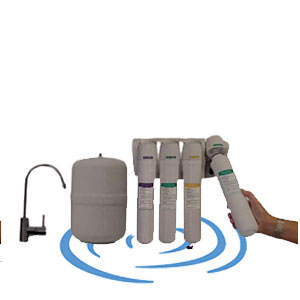Summary:
Why Lake County Homes Need Whole House Water Filtration Systems
Lake County sits in a region where groundwater naturally picks up iron, sulfur, and other minerals as it moves through Florida’s limestone and sandy soil layers. What comes out of your tap reflects this journey underground.
The result is water that might look clear initially but turns rusty when exposed to air. Water that carries that distinctive sulfur smell. Water that leaves metallic tastes in everything you drink and cook with.
A whole house water filtration system treats all the water entering your home before it reaches any faucet, shower, or appliance. Instead of dealing with problems at individual points throughout your house, you solve them once, comprehensively, right where your water line enters your property.
Common Water Problems in Lake County Well Water
Iron contamination shows up in two main forms in Lake County homes. Clear water iron dissolves invisibly in your water supply but oxidizes when exposed to air, turning your water rusty red or orange. You’ll see this as staining on fixtures, in toilets, and on laundry. Ferric iron is already oxidized and gives water that immediate rust color when you turn on the tap.
Sulfur problems manifest as that unmistakable rotten egg smell, especially noticeable when you first turn on water in the morning or after periods of non-use. This happens when sulfur-reducing bacteria in groundwater convert sulfates into hydrogen sulfide gas. The smell isn’t just unpleasant—it can be embarrassing when you have guests and can affect the taste of everything you cook or drink.
Hard water minerals, primarily calcium and magnesium, create their own set of challenges. You’ll notice soap that doesn’t lather properly, shower doors covered in spots that won’t come clean, and scale buildup inside your appliances. Over time, this mineral buildup clogs pipes and shortens the lifespan of water heaters, dishwashers, and washing machines.
These aren’t just aesthetic issues. Iron bacteria can create corrosive conditions inside your plumbing, leading to expensive repairs. Hard water forces you to use more soap and detergent while making your skin and hair feel dry and brittle. The cumulative cost of dealing with these problems—from extra cleaning products to premature appliance replacement—adds up quickly.
How Whole House Systems Protect Your Investment
Your home’s plumbing and appliances represent a significant investment. When untreated water flows through these systems daily, minerals and contaminants take their toll. Scale buildup inside water heaters reduces efficiency and shortens their lifespan. Iron deposits clog aerators and showerheads. Acidic conditions created by iron bacteria corrode pipes from the inside out.
A properly designed whole house water filtration system acts as a barrier, removing these damaging contaminants before they enter your home’s plumbing. This protection extends the life of your appliances, maintains water pressure throughout your home, and prevents the gradual deterioration that leads to expensive repairs.
The filtration process typically involves multiple stages. Sediment filters remove larger particles and debris. Carbon filters eliminate chlorine, which municipal water systems add for disinfection but which can dry out skin and hair while creating unpleasant tastes and odors. Specialized media handles iron and sulfur removal, converting dissolved contaminants into particles that can be filtered out.
For homes with particularly challenging water chemistry, additional treatment stages might include pH adjustment to prevent corrosion, or water softening to address hardness issues. The key is matching the treatment system to your specific water conditions, which is why professional water testing and system design matter so much.
The investment in a whole house system pays dividends in multiple ways. Your appliances last longer. Your plumbing stays cleaner. You use less soap and detergent. Most importantly, every tap in your home delivers water that tastes good and doesn’t carry odors or leave stains.
Choosing the Right Whole House Water Filter for Your Home
Not all water problems are the same, and not all filtration systems address the same issues. The whole house water filter that works perfectly for your neighbor might not be the right solution for your home’s specific water chemistry.
Professional water testing reveals exactly what contaminants you’re dealing with and at what concentrations. This information drives the selection of filtration media, system sizing, and configuration. A system designed around your actual water conditions will perform better and last longer than a one-size-fits-all approach.
System capacity matters too. Your filtration system needs to handle your home’s peak water demand without reducing water pressure. This means considering the number of bathrooms, appliances, and family members when sizing the system.
Carbon Filter Technology for Chlorine and Odor Removal
Carbon filtration forms the backbone of most whole house water treatment systems. Activated carbon works through adsorption, attracting and holding chlorine molecules, organic compounds, and many chemicals that affect water taste and odor.
Different types of carbon excel at removing different contaminants. Granular activated carbon provides excellent chlorine removal and helps with taste and odor issues. Catalytic carbon handles chloramines, which some municipal water systems use instead of chlorine for disinfection. Carbon block filters offer more contact time between water and filtration media, improving removal efficiency for certain contaminants.
The key to effective carbon filtration is contact time and flow rate. Water needs sufficient time in contact with the carbon media to allow adsorption to occur. Systems designed with proper flow rates and adequate carbon bed depth perform consistently over their service life.
Carbon filters require periodic replacement as the media becomes saturated with contaminants. The replacement frequency depends on your water usage and the concentration of contaminants in your water supply. Systems with larger carbon beds typically last longer between replacements, though they also require more space for installation.
Quality carbon filtration removes the chemical taste and odor that makes municipal water unpalatable while protecting your family from disinfection byproducts that can form when chlorine reacts with organic matter in water distribution systems.
Iron Clear and Sulfur Clear Treatment Options
Iron and sulfur removal requires specialized treatment approaches that go beyond basic carbon filtration. Iron clear systems typically use oxidation followed by filtration to convert dissolved iron into particles that can be trapped and removed.
Air injection systems create an environment where dissolved iron and hydrogen sulfide gas oxidize naturally. The system maintains an air pocket in the treatment tank, and as water passes through this air, iron converts to rust particles while hydrogen sulfide converts to sulfur particles. Both are then filtered out by specialized media.
Chemical oxidation systems use controlled amounts of chlorine or other oxidizing agents to convert iron and sulfur into filterable forms. These systems often include contact tanks where the oxidation process completes before filtration removes the converted particles.
Catalytic media systems combine oxidation and filtration in a single vessel. The media acts as a catalyst, promoting the oxidation of iron and sulfur while simultaneously filtering out the resulting particles. These systems often backwash automatically to clean the media and maintain performance.
For homes with iron bacteria, additional disinfection may be necessary. Iron bacteria create biofilms that protect the organisms from standard treatment approaches. Shock chlorination or continuous disinfection systems can address bacterial contamination while iron removal systems handle the mineral content.
The choice between different iron and sulfur removal approaches depends on your water chemistry, the severity of contamination, and your home’s specific requirements. Systems that work well for moderate iron levels might not be adequate for severe contamination, while oversized systems waste water and energy when treating minor problems.
Professional Installation and Service You Can Trust
The difference between a water filtration system that solves your problems and one that creates new frustrations often comes down to proper design, installation, and ongoing service. DIY systems and inexperienced installers frequently result in reduced water pressure, inadequate treatment, or premature system failure.
Professional installation ensures your system is properly sized for your home’s water demand, correctly configured for your specific water chemistry, and integrated seamlessly with your existing plumbing. Experienced technicians understand local water conditions and can anticipate potential issues before they become problems.
We bring decades of experience specifically focused on Florida water challenges. Our A+ Better Business Bureau rating and five-star reviews reflect our commitment to solving your water problems correctly the first time, with ongoing support to keep your system performing optimally for years to come.





